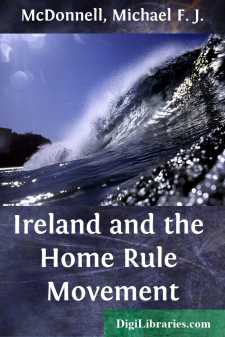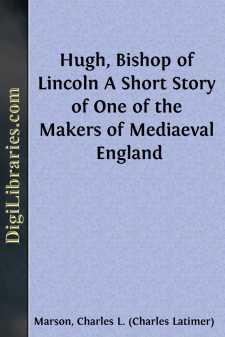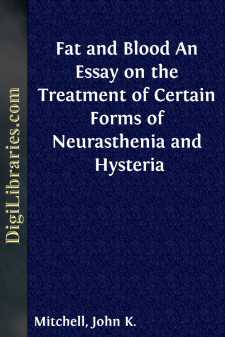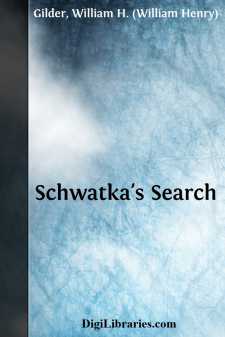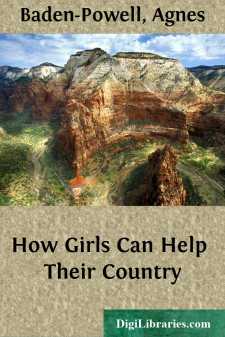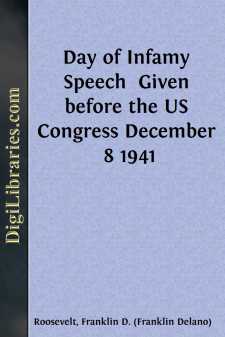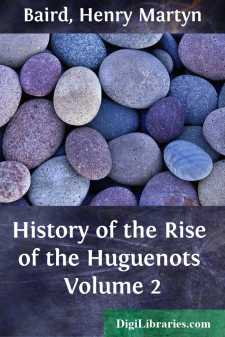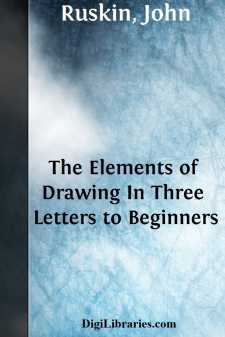Non-Classifiable
- Non-Classifiable 1768
Non-Classifiable Books
Sort by:
INTRODUCTION A decree of Pope Adrian IV., the only Englishman who has sat in the chair of St. Peter, in virtue of the professed jurisdiction of the Papacy over all islands, by a strange irony, sanctioned the invasion of Ireland by Strongbow in the reign of Henry II. Three years ago I stood in the crypt of St. Peter's in Rome, and the Englishman who was with me expatiated on the appropriate nature...
more...
INTRODUCTION In a short biography the reader must expect short statements, rather than detailed arguments, and in a popular tale he will not look for embattled lists of authorities. But if he can be stirred up to search further into the matter for himself, he will find a list of authorities ancient and modern come not unacceptable to begin upon. The author has incurred so many debts of kindness in this...
more...
FOREWORD At the Church Congress held this autumn at Birmingham I was honoured by an invitation to speak on “Sexual Relationships.” The subject-matter of that speech has aroused widespread interest and some controversy. It is being published in response to numerous requests and because most of the reports, being of necessity condensed, inadequately and even in some instances incorrectly set forth...
more...
by:
John K. Mitchell
CHAPTER I. INTRODUCTORY. For some years I have been using with success, in private and in hospital practice, certain methods of renewing the vitality of feeble people by a combination of entire rest and excessive feeding, made possible by passive exercise obtained through the steady use of massage and electricity. The cases thus treated have been chiefly women of a class well known to every...
more...
The Three Who Came With Columbus. For a while there was no sound save the soft swish-swish of the waves as the "Santa Maria," the flagship of Columbus, ploughed its way through the darkness. The moon had long since disappeared and one by one the stars had left the sky until only the morning star remained to guide Alonzo de la Calle, crouching above his pilot wheel. The man's eyes ached for...
more...
INTRODUCTION. On the 25th of September, 1880, the leading English newspaper published the following words:— "Lieutenant Schwatka has now resolved the last doubts that could have been felt about the fate of the Franklin expedition. He has traced the one untraced ship to its grave beyond the ocean, and cleared the reputation of a harmless people from an undeserved reproach. He has given to the...
more...
HISTORY OF GIRL SCOUTS Girl Scouts, like Boy Scouts, are found all over the world. When Sir Robert Baden-Powell formed the first troops of Boy Scouts, six thousand girls enrolled themselves, but, as Sir Robert's project did not include the admission of girls, he asked his sister, Miss Baden-Powell, to found a similar organization for girls, based on the Boy Scout laws, with activities and...
more...
Mr. Vice President, Mr. Speaker, Members of the Senate, and of the House of Representatives: Yesterday, December 7th, 1941 — a date which will live in infamy — the United States of America was suddenly and deliberately attacked by naval and air forces of the Empire of Japan. The United States was at peace with that nation and, at the solicitation of Japan, was still in conversation with its...
more...
THE FIRST CIVIL WAR.Inconsistencies of the Edict of January.The Edict of January was on its very face a compromise, and as such rested on no firm foundation. Inconsistent with itself, it fully satisfied neither Huguenot nor Roman Catholic. The latter objected to the toleration which the edict extended; the former demanded the unrestricted freedom of worship which it denied. If the existence of two...
more...
by:
John Ruskin
i. It may perhaps be thought, that in prefacing a manual of drawing, I ought to expatiate on the reasons why drawing should be learned; but those reasons appear to me so many and so weighty, that I cannot quickly state or enforce them. With the reader's permission, as this volume is too large already, I will waive all discussion respecting the importance of the subject, and touch only on those...
more...


